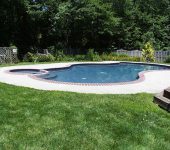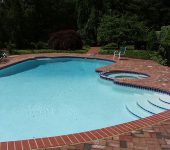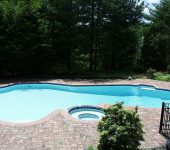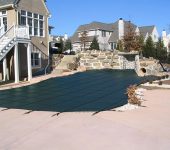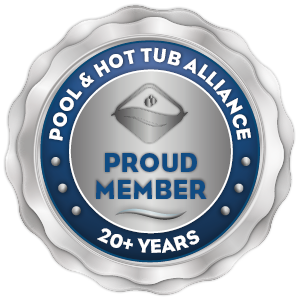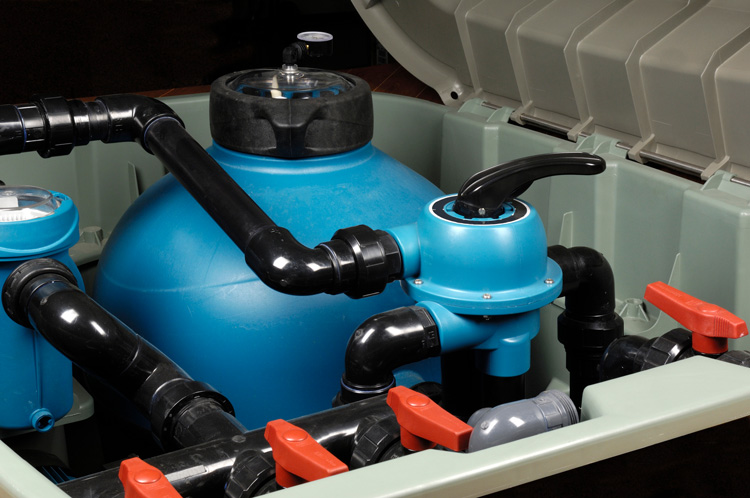
How to Choose the Right Pool Heater for Your Pool – Pool Heat Pumps
Regardless of your reasoning for purchasing a pool heater, you should be informed about what all your options are. There are three kinds of pool heaters: solar, gas, and pool heat pumps. In this post, we’ll be focusing on what you should know about pool heat pumps.
Pool heat pumps transfer water from your pool through the pump’s system. A fan within the pump creates heat by pulling outside air and guiding it over an evaporator coil. That coil contains liquid refrigerant that pulls the heat from the air and changes it into warm gas, which then travels to a compressor that heats the gas up. The gas then travels through a condenser where part of it returns to the pool water while the rest of it changes back into liquid before returning to the evaporator to repeat the process.
Pool heat pumps last longer than gas pool heaters and are typically less expensive in the long run. However, they do cost more up front, ranging from $2,000 to as much as $5,000.
The price to run a pool heat pump depends on the climate where you live. The warmer it is, the less you’ll pay to run the pump. If you use a solar cover, you can dramatically decrease your costs.
Pool heat pumps are rated by BTU output (just like gas pool heaters) as well as by horsepower (hp). Typical sizes are 3.5 hp/75,000 BTU, 5 hp/100,000 BTU, and 6 hp/125,000 BTU. In order to find the right size pump with the right output, you will use the same formula you would use for a gas pool heater.
Multiply your pool’s width by its length to get the surface area. Then, figure out your desired pool water temperature and subtract from it the average air temperature during the coldest month of pool use. The resulting number is the temperature rise needed for your pool. Multiply that number by the surface area, and then multiply that by 12 to get the BTU output your pool needs.
Pool heat pumps have great benefits: they’re eco-friendly, create no emissions, are a great alternative to solar heaters (especially if you live in an area where a solar heater won’t work), are inexpensive to run, and typically last about 20 years.
However, pool heat pumps also have some drawbacks. They require electricity (typically a 220V outlet), they don’t work well in colder weather, they’re more expensive up front than other heating options, and they heat the water very gradually.
If you want to decrease the cost of running a pool heat pump even further, invest in a solar or liquid solar pool cover to heat your pool water more efficiently and reduce evaporation.
If you need help with choosing the right pool heat pump, or you need assistance with pool services such as or cleaning, maintenance, or repair, please visit the Arrow Pool contact page to submit a form, or call us at (610) 557-3851.


 Hours
Hours
